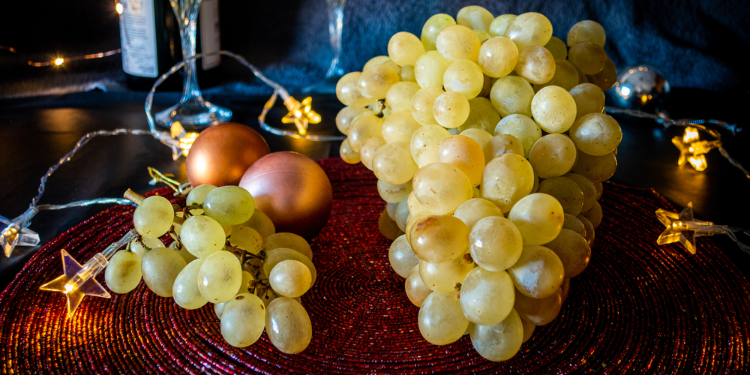
The traditions around New Year vary around the world. You can discover them through travelling, but living in a country with a different culture as an expat can be a confusing yet exciting experience, as you can learn a new culture and broaden your worldview. So how to approach a culture that is so different from yours when you seem to be “trapped” celebrating in a place with different ideas of fun?
Most of the celebrations around the world have tangencies, but some are so different that you might find yourself wondering how to adapt to your environment. The process of adaptation can be divided into three phases:
- Cultural shock is the normal feeling when people feel confused and even stressed about being in a new environment. It can feel like homesickness, difficulty to concentrate or even tiredness. Cultural shock is the first contact with an environment or a culture that is different to what you are used to. While the first impression may seem confusing, let yourself feel those feelings. Keep in mind that with prolonged exposure, they will change.
- Cultural adjustment is when the feelings of stress slowly start to wear off, and you begin to feel comfortable with the local traditions in the place you are in. This usually happens through meeting people and making friendships who will welcome you to their traditions. The adjustment period is different for everyone and is a period of your personal transformation from a mono-cultural state to multiculturalism.
- Appropriation is feeling comfortable with your new culture. Imagine yourself on a table celebrating New Year with a culture completely different from yours. Instead of giving to confusion, try to be open-minded and curious to learn from the experience you're having. Don't shy away from questions, and don't worry too much about fitting in. Accept your environment, and let it accept you. Make mistakes and be patient with yourself and with the people surrounding you.
Celebrate the New Year in a different way
If the place you are in does not celebrate New Year at the same time you usually do, you don't need to worry. Instead, take it as an opportunity to celebrate more, according to the local tradition, and according to yours. In addition, you can find a company of people from your country to party with or even show your local or foreign friends what your country's tradition is.
No matter the location in the world, one thing is certain. Some very fun things are happening during the celebration of the new year. Some of the unique traditions for New Year's Eve around the world are:
- Eating lentils in Brazil means that you will have good fortune in the New Year. A similar tradition is followed in Southern Italy.
- As the clock turns 12, you should eat twelve grapes in Spain, one for each time the clock chimes, which should bring you good fortune in the upcoming year.
- Slurping on soba noodles in Japan is a tradition that means strength. The noodles are made of buckwheat which represents resilience.
- In Russia, you write your wish on a piece of paper and burn it, put it in a glass of champagne and drink it to make your wish come true.
- Breaking dishes outside is a tradition in Denmark, which besides a good channelling method, is supposed to leave all bad thoughts and aggression and start the year afresh.
- Krampus is a scary devil-like creature with horns of a goat common in Austria, Northern Italy and Croatia. Krampus accompanies Saint Nicholas. According to this folklore, the good kids are rewarded with gifts, and the bad ones receive punishment from Krampus.
Celebrate the New Year on another day
Some countries have a completely different day for celebrating the new year. The Chinese New Year is a few weeks after the Gregorian New Year. The celebrations are huge, with many shows and traditions dedicated to the animal representing that year. The largest cities in India celebrate the common Gregorian date of December 31. However, many smaller places celebrate culture-specific days like the Parsi New Year, Hindu New Year, and Muslim New Year. The Thai New Year, also known as Songkran, is on 13 or 14 April, a period which is a national festival and is considered a period of transformation.
Orthodox countries like Serbia, Northern Macedonia, Greece and Bulgaria, and Russia celebrate the New Year according to the Julian calendar. The traditions vary but include having a pie with a coin inside. The one who wins the coin will have luck all year. In addition, pumpkin is a typical food on the table which is believed to protect from skin diseases.
Almost all countries worldwide that follow the Gregorian calendar have the first day of the year as a public holiday, but this varies from country to country. The majority has January 1 as the public holiday. Some have both New Year's Eve and January 1 as a holiday; some celebrate the second or even the third and fourth day (Kuwait, Montenegro, UK, New Zealand, Armenia and Kazahstan).
Will the craziest night of the year be crazy for you? It is your personal decision. It sometimes depends on the place where you are. Some places charm with their celebratory spirit, fireworks and crowds of singing people. Others are more quiet, giving importance to other dates. It is up to you to understand how you want to begin your year. No matter where you are, you can always gather people around you willing to celebrate in the same way you do. But, on the other hand, you can enjoy having a cosy time and privacy, remembering that every new day is a new chapter and that December 31 is not an exception to that rule.
The world is a diverse place. We are unified, eat, sleep and think in similar ways, but still live in different realities, and through the lenses of our culture, we celebrate the completion of the journey that our planet makes around the Sun.



















